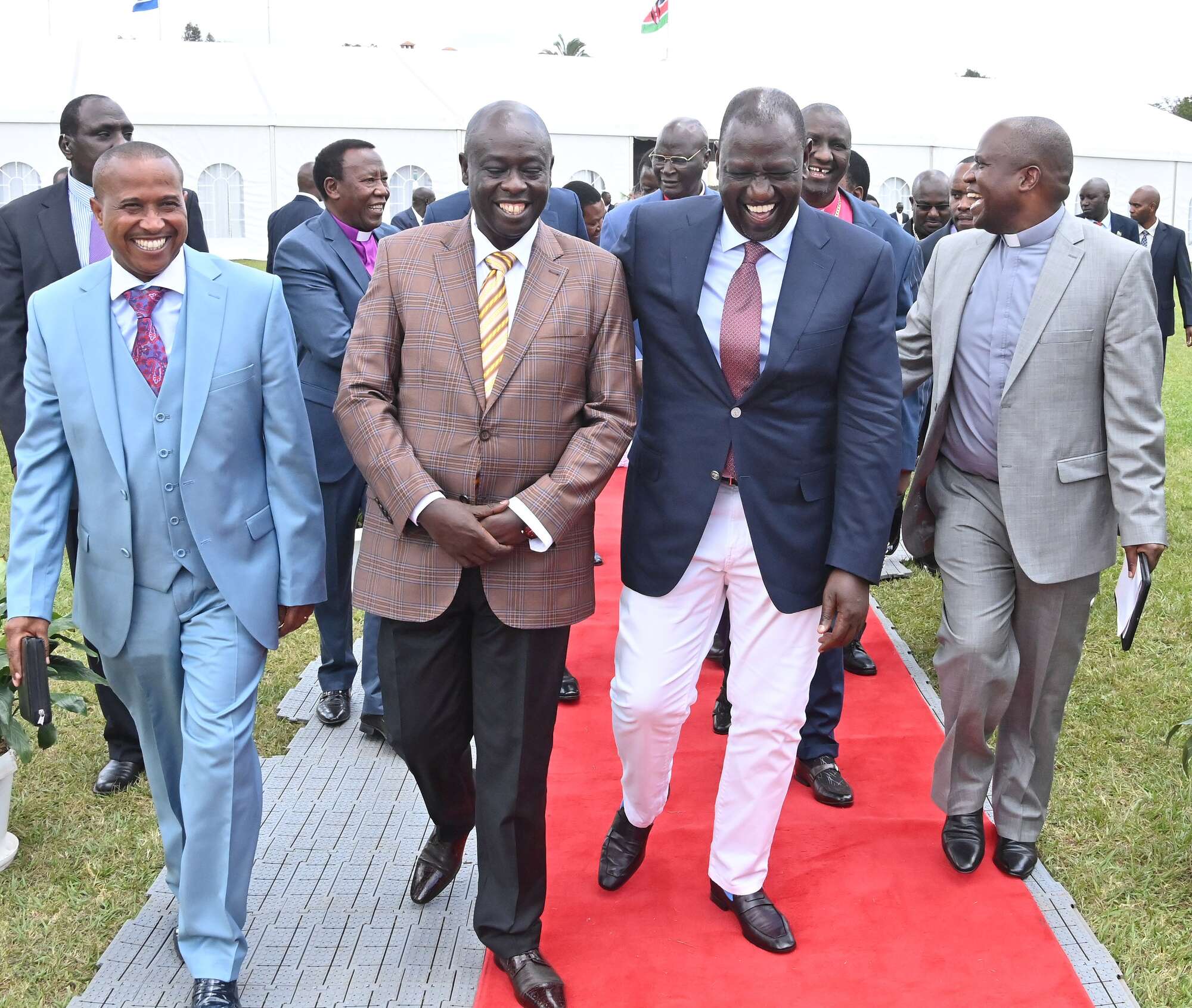[ad_1]
Economy
Sectors African investors are eyeing in Ruto government
Tuesday September 27 2022
President William Ruto, Deputy President Rigathi Gachagua and clergy after a thanksgiving church service at State House, Nairobi. PHOTO | PSCU
African investors are courting William Ruto’s government to get new deals in fertiliser, electricity and cashew nuts trade.
Jorge Mandiga, a Guinea Bissau businessman who was in Kenya during the swearing-in of President Ruto and on a charm offensive said “the new President (Ruto) has promised to pursue his predecessor’s big agenda, which is why we want to pump in a few hundred million dollars in the power sector.”
Power projects, he said, “are the base of any economy and the locomotive to its success, which is why we are very interested in following Kenya’s Least Cost Power Development Plan (LCPDP), especially on the Ol Karia project”.
The power sector is an enabler for various economic sectors to meet their objectives, he said during his visit to Kenya.
A civil engineer with investment interests in hedge funds, Mr Mandiga also has investments in dam projects.
“With my experience as a minister (in charge of telecoms and transport), we’re well-versed in deep studies on what projects to put money into, and Kenya with its anticipated six percent growth offers opportunities, not just in shilling return but also to connect our economies,” he said.
Mokhtar Ghambou, the ex-ambassador to Kenya and Yale lecturer, said governments are plotting a charm offensive to repair ties and create new ones with incoming administrations is normal.
“To use a practical example, if the new President wishes to ensure lower fertiliser prices for farmers, he may wish to get Kenya into intra-trade with the Maroc Company OCP (Office Chérifien des Phosphates), which is the world’s leading manufacturer of phosphate-based fertilisers, with a third of the world market (and more than $6 billion in revenue in 2021),” he said.
Kenya has been looking at trading more with African nations as it moves to cut over-reliance on the European and Asian markets after it took a hit from the global disruptions in supply chains triggered by the Ukraine crisis and the Covid-19 pandemic.
Uganda, Tanzania, Rwanda, Egypt and DR Congo are some of the top sources of imports for Kenyan goods.
The investors are hoping for one African passport to ease movement and one currency.
In Angola, the Mandiga venture capitalist consortium of African private investors (and private Asian funds) has put in about $250 million (Sh30 billion) into agri-business projects in the province of Uige, where they also own vast land, and are plan investing similar sums in renewable energy, hydro-and-wind projects in Zimbabwe.
In Kilifi, Mr Mandiga and other investors are targeting cashew nut growing, processing and exporting.
Investors are looking to build cashew nut factories in Kakanjuni and Vipingo in Kilifi projects that are anticipated to employ about 100,000 people.
Mr Mandiga sees Kilifi exporting the cashew nuts to Brazil, Dubai and the island of Madeira, already markets of his cashew nut chain.
The business mogul was part of the delegation of Guinea-Bissau President Umaro Embalo that attended the inauguration of Dr Ruto, alongside presidents Dennis Nguesso of Congo, Filipe Nyusi of Mozambique, Emmerson Mnangagwa of Zimbabwe, Wavel Ramkalawan of Seychelles, Azali Assousmani of Comoros, and all East African Community Heads of State, many of whom are keen on strengthening bilateral ties with Kenya.
Ruto’s administration announced new fertiliser prices as it seeks to reform the agricultural sector and stimulate food production for lower prices.
The price of fertiliser, he said, will fall by Sh3,000, from Sh6,500 to Sh3,500 a bag.
“He was not just one of our continent’s foremost anti-colonial leaders but also an agricultural engineer, intellectual, poet, theoretician, revolutionary, diplomat, political organiser, nationalist and Pan-Africanist. When his men were not on the battlefield, they were in the fields, teaching local farmers better agricultural techniques to increase the yield of the land from the work of their hands,” Mr Mandiga said.
[email protected]
[ad_2]
Source link



